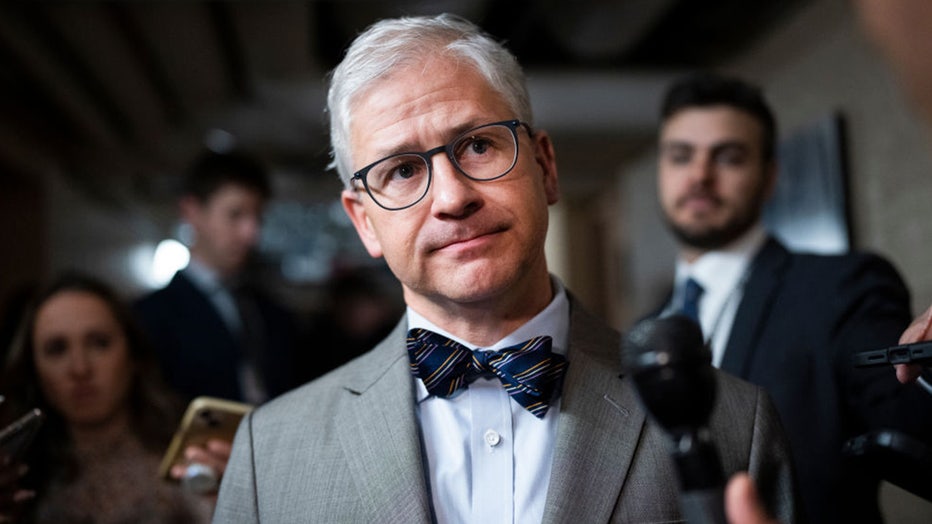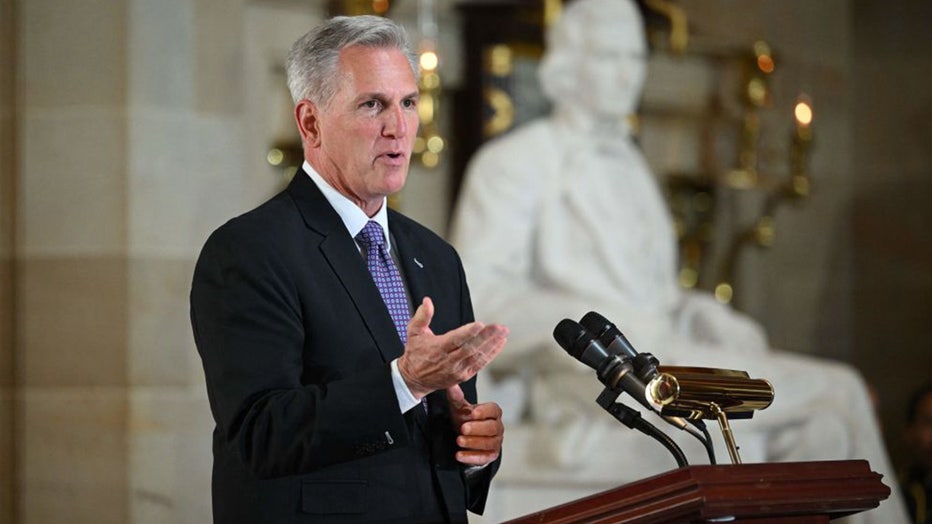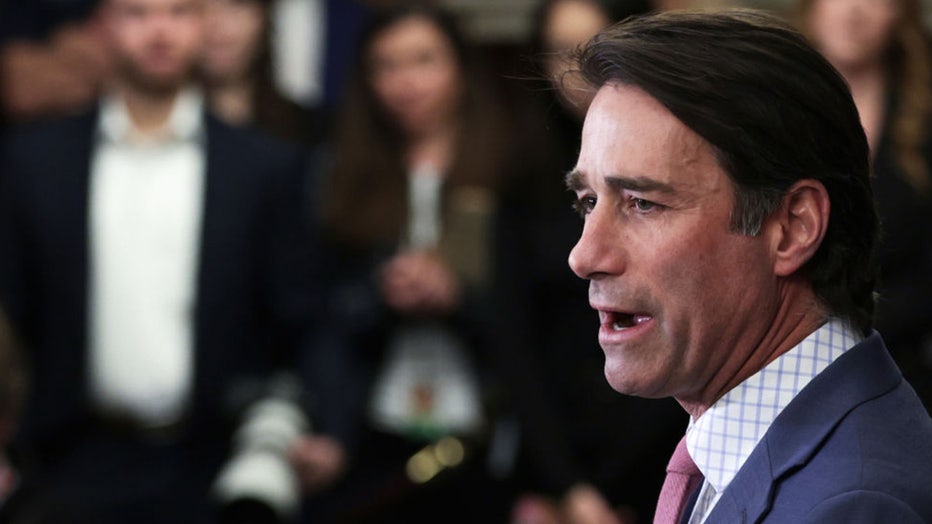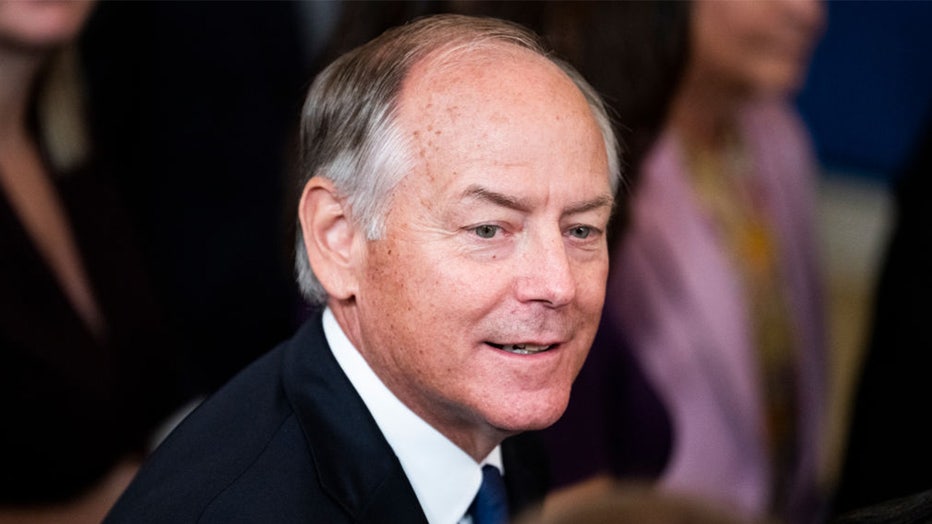Debt limit talks stall as Republicans, White House face 'real differences'
Debt ceiling debate: Sen. Sanders asks Biden to invoke 14th amendment
During a press conference on Thursday, Senator Bernie Sanders and other democratic leaders called on President Biden to invoke the 14th amendment. This comes as the debt ceiling deadline looms and a decision hasn't been made yet. More LiveNOW from FOX streaming video
WASHINGTON - Debt limit talks came to an abrupt standstill Friday after Republican House Speaker Kevin McCarthy said it's time to "pause" negotiations, and a White House official acknowledged there are "real differences" that are making talks difficult.
McCarthy said resolution to the standoff is "easy," if only President Joe Biden would agree to some spending cuts Republicans are demanding. It is unclear when negotiations would resume.
"We’ve got to get movement by the White House and we don’t have any movement yet," McCarthy, R-Calif., told reporters at the Capitol. "So, yeah, we’ve got to pause."
A White House official who was granted anonymity Friday to discuss the private conversations said there are "real differences" between the parties on the budget issues and further "talks will be difficult."
The official added that the president’s team is working hard towards a "reasonable bipartisan solution" that can pass both the House and the Senate.

FILE - Rep. Patrick McHenry, R-N.C., is seen after a meeting of the House Republican Conference on Tuesday, April 18, 2023. (Tom Williams/CQ-Roll Call, Inc via Getty Images)
Biden's administration is racing to strike a deal with Republicans led by McCarthy as the nation careens toward a potentially catastrophic debt default if the government fails to increase the borrowing limit, now at $31 trillion, to keep paying the nation's bills.
Wall Street turned lower as the negotiations on raising the nation’s debt limit came to a sudden halt, raising worries that the country could edge closer to risking a highly damaging default on U.S. government debt.
The president who has been in Japan attending the Group of Seven summit had no immediate comment. Biden had already planned to cut short the rest of his trip and he is expected to return to Washington later Sunday.
Negotiators met for a third day behind closed doors at the Capitol with hopes of settling on an agreement this weekend before possible House votes next week. They face a looming deadline as soon as June 1 when the Treasury Department has said it will run out of cash to pay the government’s incurred debt.

FILE - US House Speaker Kevin McCarthy, Republican of California, speaks during a portrait unveiling for former house speaker Paul Ryan in Statuary Hall at the US Capitol in Washington, DC on May 17, 2023. (MANDEL NGAN/AFP via Getty Images)
Republicans want to extract steep spending cuts that Biden has so far refused to accept. Any deal would need the support of both Republicans and Democrats to find approval in a divided Congress and be passed into law.
"Look, we can’t be spending more money next year," McCarthy said at the Capitol. "We have to spend less than we spent the year before. It’s pretty easy."
But McCarthy is facing a hard-right flank of Freedom Caucus and other Republican lawmakers that almost certain to oppose any deal with the White House.
RELATED: Debt ceiling: Biden cuts short upcoming trip; McCarthy says deal possibly by end of week
The internal political dynamics confronting the embattled McCarthy leaves the Democrats skeptical of giving away too much to the Republicans that drives away the Democratic support they will need to pass any compromise through the Congress.
Experts have warned that even the threat of a debt default would send shockwaves through the economy.

FILE - U.S. Rep. Garret Graves (R-LA) speaks to members of the press as other House Republicans listen during a news conference after the vote for H.R.1 – Lower Energy Costs Act at the U.S. Capitol on March 30, 2023 in Washington, DC. (Alex Wong/Getty Images)
Markets had been rising this week on hopes of a deal. But that shifted abruptly Friday after negotiators ended late morning an hour after they had begun.
Rep. Garret Graves, R-La., tapped by McCarthy to lead the talks, emerged from an hourlong session at the Capitol and said gaps remained between House Republicans and the Democratic administration.
"It’s time to press pause because it’s just not productive," Graves told reporters.
He added that the negotiations have become "just unreasonable" and that it was unclear when talks would resume.
The S&P 500 went from a gain of 0.3% to a loss of 0.1% and the Dow Jones Industrial Average went from a gain of 117 points to a loss of about 90 points.
Biden departed early from a dinner with G7 leaders in Hiroshima on Friday night. White House press secretary Karine Jean-Pierre said Biden planned to be briefed on the negotiations by his team Friday evening.
As Republicans demand spending cuts and policy changes, Biden is facing increased pushback from Democrats, particularly progressives, not to give in to demands they argue will be harmful to Americans.

FILE - Steve Ricchetti attends the official White House portrait unveiling ceremony for President Barack Obama and former First Lady Michelle Obama in the East Room of the White House on Wednesday, Sept. 7, 2022. (Tom Williams/CQ-Roll Call, Inc via Getty Images)
Another Republican negotiator, Rep. Patrick McHenry of North Carolina, said, "There is a "serious gap" between the sides.
"We’re in a tough spot," said McHenry, the chairman of the House Financial Services Committee, as he left the meeting.
McCarthy faces pressures from his hard-right flank to cut the strongest deal possible for Republicans, and he risks a threat to his leadership as speaker if he fails to deliver.
A day earlier, the conservative House Freedom Caucus said there should be no further discussions until the Senate takes action on the House Republican bill that was approved last month to raise the debt limit into 2024 in exchange for spending caps and policy changes. Biden has said he would veto that Republican measure.
In the Senate, which is controlled by majority Democrats, the Republican leader Mitch McConnell has taken a backseat publicly, and is pushing Biden to strike a deal directly with McCarthy.
McConnell blamed Biden for having "waited months before agreeing to negotiate" with the speaker.
"They are the only two who can reach an agreement," McConnell said in a tweet. "It is past time for the White House to get serious. Time is of the essence."
Democrats are wary of any deal with Republicans, and particularly refuse the Republican proposal to protect defense and veterans accounts from spending caps, arguing that the cuts will fall too heavily on other domestic programs.
Republicans also want to impose stricter work requirements on government aid recipients. Biden has suggested he might be open to considering it, but Democrats in Congress have said is a nonstarter.
___
Miller reported from Hiroshima, Japan. Associated Press Business Writer Stan Choe and writers Seung Min Kim, Stephen Groves and Mary Clare Jalonick contributed to this report.

